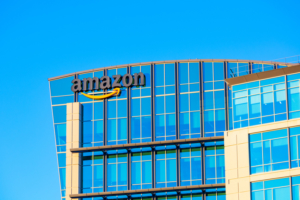Update: Amazon-MGM Merger On Hold
The Federal Trade Commission is overlooking Amazon’s purchase of MGM at a vast $8.45 billion. The pressure brought on by unions and the world of progressive politics called on the FTC to deny the acquisition, resulting in the FTC to examine the proposed deal to either block it or demand the company to stand by certain conditions, such as decoupling Amazon Prime Video from the rest of Prime in order to receive approval.

The Strategic Organizing Center (SOC), a federation of labor unions represents almost 4 million workers, which pushed the FTC to examine Amazon’s purchase of MGM. The SOC includes the Teamsters, the Communications Worker of America, Service Employees International Union, and the United Farmworkers of America.
On August 11, a letter was sent to Holly Vedova, the acting director of the FTC’s Competition Bureau, from SOC Executive Director, Michael Zucker, which claimed that Amazon had already hired non-competitive practices in the streaming-video industry and the proposed deal would only strengthen its power resulting in detrimental outcomes for consumers, competitors, and the film industry as a whole.
“The merger would also create further harmful vertical integration in the film industry at large. The SVOD market has expanded at a rapid pace in recent years. In the process, the production and exhibition of video content has become increasingly vertically integrated. This integration creates a power imbalance between large, vertically-integrated firms and their smaller competitors,” said Zucker, SOC’s executive director. “It also creates incentives for SVOD providers to limit the content available to consumers via alternative exhibition channels, as well as filmmakers’ access to the increasingly vital content exhibition space that SVOD providers control. SVOD providers’ increasing vertical control also has implications for the integrity and diversity of content available to consumers and, by extension, freedom of expression itself.”
Amazon Prime members are offered Prime Video for free, which has been a huge driving force for member signups. Amazon considers Prime Video an extremely valuable component of their business model, which has resulted in Amazon Prime being one of the world’s largest loyalty programs. And while the MGM deal may be ‘small’ for Amazon, given that the e-commerce conglomerate reported their revenue to be $386 billion in 2020, it has the potential to hurt consumers, competitors, and the film industry.

“Allowing the MGM merger would exacerbate the trend towards vertical integration and create additional opportunities for Amazon to leverage its power in the SVOD and related markets in ways that will harm filmmakers, consumers, and other stakeholders,” Zucker said. “There is growing recognition that vertical mergers require more regulatory scrutiny than they have received in the past to prevent the strongest market players from utilizing their dominance in ways that harm competition, innovation, and consumers. The dangers of vertical integration are particularly acute with respect to dominant digital platforms such as Amazon because of their ability to leverage their gatekeeper power in one market into multiple other lines of business. This merger presents an opportunity for the FTC to curb Amazon’s expansion of power in yet another line of business and place reasonable limits on how one of the country’s largest and most dominant companies is permitted to compete. For these reasons, as described more fully below, we urge the Commission to block Amazon’s acquisition of MGM.”
On a post-merger call, Amazon’s Jeff Bezos boasted of MGM’s intellectual property, which also includes the James Bond franchise among others. However, Amazon Prime Video seldom ever mentions the intellectual property on any of the earnings calls, including the most recent one that was had in July.
The FTC is calling for the merger to either be blocked or placed under certain conditions. The reason being is due to the fact that Amazon has a strong history of having a great amount of dominance in the e-commerce industry, resulting in non-competitive and unfair practices, hindering its competitors, consumers, and the film industry.
“For these reasons, we strongly urge the Commission to reject Amazon’s acquisition of MGM. We have suggested conditions the FTC should place on Amazon if it allows the merger,” said Zucker. “These include requiring Amazon to 1) unbundle Prime Video and delivery and price Prime Video at a market rate; 2) provide competitors neutral access to its Fire TV Stick device and cloud computing services; 3) limit the imposition of all-rights contracts on content makers; and 4) share viewership data with content makers with which it contracts.”
The SOC and those associated with the federation submitted a petition for the FTC to evaluate a wide range of non-competitive practices created by Amazon, along with another letter in regards to the e-commerce conglomerate’s practices throughout the COVID-19 pandemic.
It is certainly no secret that Amazon’s working conditions have been targeted and called upon, as well as many lawsuits filed against the e-commerce giant for its non-competitive practices. Beyond that, there have been a number of lawsuits filed against Amazon regarding antitrust legislation and more.
“Because Amazon is leveraging its e-commerce power in the SVOD market, and maybe engaging in predatory pricing by operating Prime Video at a loss, Amazon should not be permitted to merge with MGM and further enhance its market power in the SVOD market,” said SOC’s Zucker. “If Amazon is permitted to complete the acquisition, the Commission should require Amazon to decouple the Prime delivery service from the Prime Video service and price its Prime Video membership to reflect its true cost.”
Amazon requested that FTC’s recently appointed Commission Chief, Linda Khan, recuse herself from the merger review. Khan is a major proponent of redefining and developing the breadth of antitrust in modern times.
In a letter sent on June 30 by Amazon, it said, “[Khan] has on numerous occasions argued that Amazon is guilty of antitrust violations and should be broken up. These statements convey to any reasonable observer the clear impression that she has already made up her mind about many material facts relevant to Amazon’s antitrust culpability.”
The FTC plans to take a very close look at the Amazon-MGM deal; however, it is unclear whether Khan will be recused from the review.
About Vedette Finance
Tarek Anthony Jabre began his career in finance, dealing with FX currency trading, portfolio management, and private clients funds. In 2012, he founded Vedette Finance, a Los Angeles-based film development, and finance company. Vedette Finance is known for reaching a wide international network of finance and talent. Vedette Finance’s fundamental goal is to develop its premium value slate, creatively, and structure the financing to produce a diverse range of high-quality film projects.
For more information about Vedette Finance, visit www.VedetteFinance.com.

